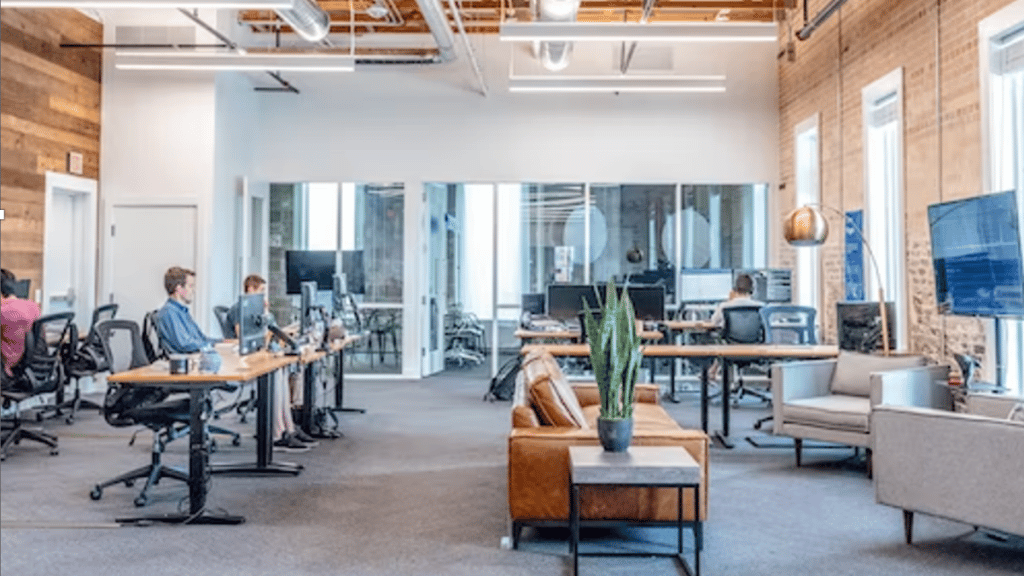Many different factors come into play when it comes to creating the perfect office space for your staff and customers. One of these is maintaining a clean and healthy environment. It may be easier than you think through use of the right equipment and installations like commercial vinyl plank flooring. Tend to it today—not only when someone complains about cleanliness—because it impacts your brand at large.
Why do Clean Workspaces Matter?
Does it really matter if you haven’t swept or vacuumed your office space for a few days? Yes, it matters a lot. Here’s why.
- First impressions: A clean workspace not only looks appealing but professional as well. This is especially important if customers spend any time in your space. Clean office spaces tell potential customers that you care about finer details, which in turn creates the impression that you will take care of them too.
- Brand elevation: The average customer will always associate your workspace with the type of service or product you can provide. Whether you’re running an IT company, a dentist practice or a taco shop, a customer will judge your brand based on how comfortable they feel in your office space.
- Improved air quality: No one wants to work in a dusty, mouldy office space. Equally, no one wants to shop, eat or buy products in such an environment either. Keeping the office floors clean will go a long way toward reducing any harmful airborne pollutants.
Pointers to Establish Effective Office Cleaning Routines
Whether you have designated cleaning staff, or ask everybody to pitch in, it’s important to create guidelines for effective cleaning routines. This will ensure that your commercial space is always clean and inviting, shining a positive light on your brand. We’ve drawn up a few pointers to help you create a functional cleaning system.
1. A Culture of Cleanliness
No matter what type of business you’re running, everyone’s busy. However, no one should be too busy to maintain a certain level of cleanliness in their personal workspace. Being busy shouldn’t make it acceptable to be sloppy or untidy.
Therefore, create a culture of cleanliness that makes it clear that everyone should be equally responsible for keeping the space clean. To create this cleanliness culture, you will need to enforce certain habits:
- Each person is responsible for their individual workspace—that includes emptying the dustbin and vacuuming or sweeping the area where they work.
- Enforce the “put it back” rule—if a person takes an item from a cupboard, shelf or storeroom, they are responsible for putting it back. Whether it’s a file, stapler or machine part, it needs to be put back where it belongs.
- Limit eating to the kitchen or canteen area and those zones should be cleaned before lunch or teatime is over.
2. Draw up a Schedule and Stick to it!
To avoid issues when it’s time to clean, we advise drawing up a detailed schedule. Not only will this ensure that your workspace remains clean, but it will also keep you in compliance with industry regulations.
Set the sweeping, vacuuming and floor washing duties to be done in the morning or late afternoon, so it’s done before or after the busiest time of your workday. If you don’t have a designated cleaner, it might be a good idea to hire a cleaning crew over the busy period of the month. This way your staff can focus on generating revenue when schedules are the most hectic.
3. Provide the Right Cleaning Equipment and Low-Maintenance Features
Improved maintenance starts with how your space is designed. For example, installing the commercial carpet tiles Melbourne businesses are so fond of will go a long way to ensuring maintenance is low-key. The right flooring is durable but also easy to clean.
Furthermore, no matter who will be cleaning, they will need the right cleaning equipment. The type of space you have will determine the products you need, but the general options to consider include:
- Brooms, mops, buckets & cloths
- Industrial-strength vacuum cleaner if there are carpets
- Assorted floor cleaning products—if you have vinyl floors, be sure to avoid harsh chemicals
- Sanitisers
- Appropriate number of dustbins so they are easily accessible for everyone
- Kitchen and bathroom cleaning products
- Degreaser and other mechanical-related products if you’re working with machinery that needs cleaning
- If you have eye washing stations or safety showers, check with your safety rep about any specific products needed for these.
Final Thought
Many factors determine productivity levels and cleanliness is one of them. No one will really feel motivated to be productive in an untidy or grimy workspace. Furthermore, a sanitised and clean workspace indicates professionalism and shows visitors that you care about your brand, your employees and most importantly, your customers.
Clean spaces are also considerably healthier and reduce the risk of respiratory or pathogen-related infections. By following these simple guidelines, you’ll be able to keep your space clean and tidy—and enjoy all the benefits that stem from it.
